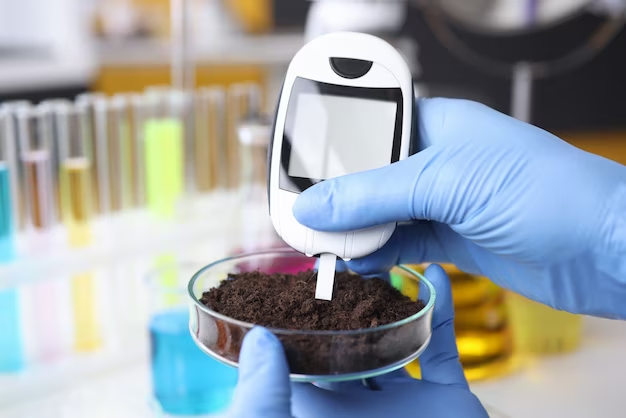
Nov 22, 2023

The rare biological sample collection market is a niche yet essential segment of the broader life sciences industry. It caters to the specific needs of researchers, clinicians, and organizations that rely on rare specimens for their work, whether it's to advance medical research, develop new therapies, or unravel mysteries hidden in the genetic code.
Rare biological samples encompass a vast spectrum of materials, from exceptionally rare tissue specimens and exotic plant samples to ancient DNA and unique microorganisms. What sets these samples apart is their scarcity and the vital insights they can offer, making them invaluable to the scientific community. While conventional biological sample collections exist, such as blood banks or tissue repositories, the rare biological sample collection market focuses on the exceptional, the unconventional, and the extraordinary.
One of the primary drivers behind the demand for rare biological samples is the growing field of precision medicine. In an era where tailoring medical treatments to an individual's genetic makeup is becoming a reality, researchers require access to diverse and rare biological materials to explore the genetic variations that underlie diseases and responses to therapies. These unique specimens hold the potential to transform our approach to healthcare, making it more personalized and effective.
Moreover, the field of rare biological sample collection is not confined to Earth's surface. Advancements in space exploration have opened up new frontiers in sample collection. Astronauts on the International Space Station are collecting unique biological samples, such as microbes, to better understand the effects of space travel on living organisms. These extraterrestrial samples are a testament to human curiosity and the drive to explore the unknown.
The market's stakeholders include biobanks, research institutions, pharmaceutical companies, and government agencies. These entities invest in the acquisition, preservation, and sharing of rare biological samples, creating a web of interconnected resources that researchers can tap into. For instance, biobanks play a pivotal role in preserving and managing rare biological specimens, ensuring their long-term viability for research.
In recent years, technology has played an increasingly important role in this market. Advanced biobanking solutions allow for the secure storage and retrieval of rare specimens. Cryogenic storage, for example, has become a key technique for preserving rare biological samples, ensuring that they remain viable for future research.
The market for rare biological sample collections has experienced significant growth. The rising awareness of the importance of these samples and the increasing emphasis on precision medicine have driven demand. Additionally, collaborations between research institutions and biobanks have expanded access to these collections, further fueling research efforts. Moreover, the advancement of genomic sequencing technologies has made it more feasible to analyze and utilize these rare samples, enhancing their value to researchers.
However, the market is not without its challenges. The ethical and legal aspects of acquiring and using rare biological samples are complex. The need for informed consent, especially for samples from indigenous communities or vulnerable populations, raises important ethical considerations. Striking a balance between scientific progress and respecting the rights and wishes of the donors is a dilemma that continues to be navigated in this field.
The Rare Biological Sample Collection Market stands as a testament to the ceaseless quest for knowledge and the unending curiosity of humankind. In a world where the ordinary may not suffice, where standard specimens are inadequate for the profound questions we seek to answer, this market provides the means to explore the extraordinary.
As technology and medical science advance, the role of rare biological samples will only become more prominent. These samples hold the key to unraveling mysteries, finding cures, and personalizing medical treatments. The market's growth is a reflection of its vital importance in advancing science and improving healthcare.
As this market continues to evolve and expand, it will be essential for stakeholders to address the ethical and legal complexities that come with acquiring, storing, and using rare biological samples. Respecting the rights and autonomy of donors and ensuring the responsible and transparent use of these extraordinary specimens should remain at the forefront of the market's development.
In conclusion, the Rare Biological Sample Collection Market presented by Metastat Insight’s report is not merely a niche segment of the life sciences industry; it is a source of hope, discovery, and progress. It is where the extraordinary becomes the gateway to the future of science and medicine, unlocking secrets we have yet to comprehend.
Drop us an email at:
Call us on:
+1 214 613 5758
+91 73850 57479